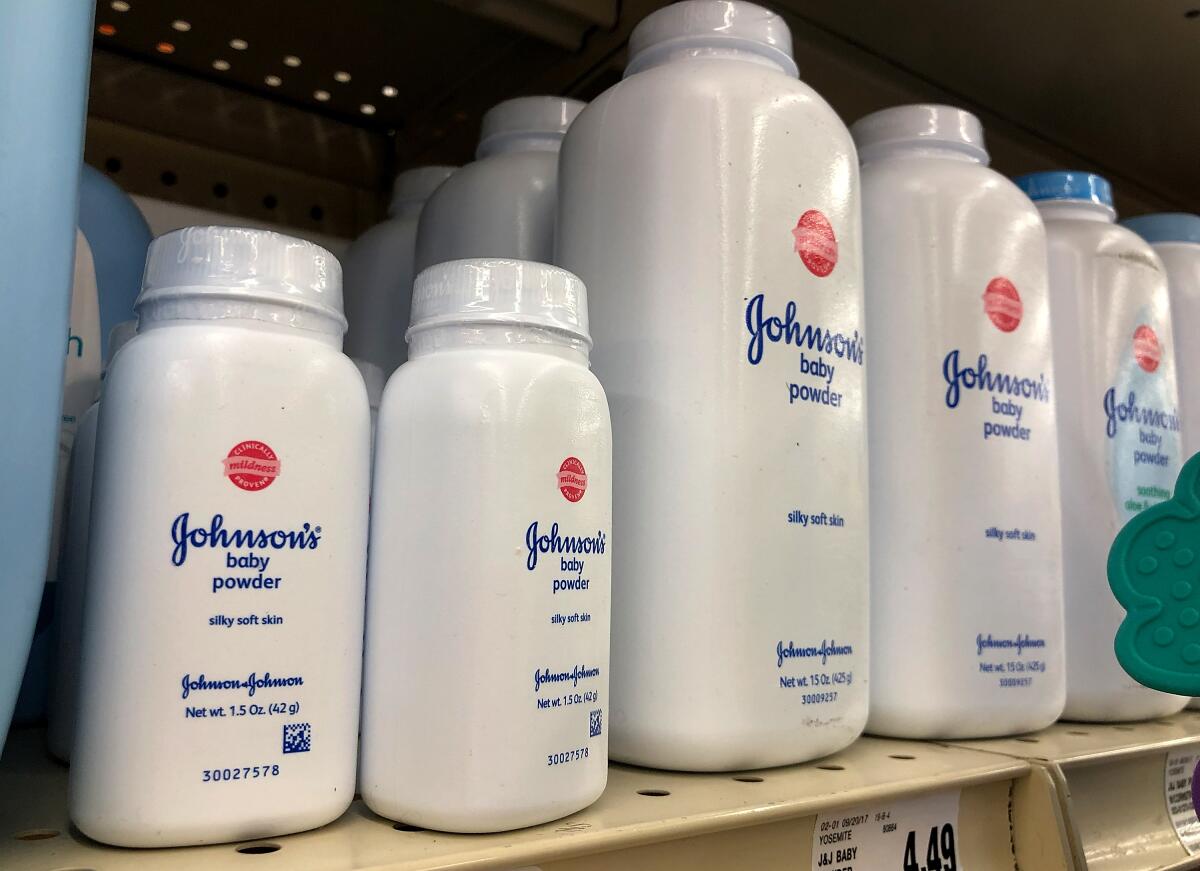A California cancer patient wins $18.8 million from Johnson & Johnson in baby powder trial

Johnson & Johnson was ordered to pay $18.8 million to a California man who blames the company’s talcum-based powders for giving him cancer in the company’s first trial in almost two years over accusations it hid the health risks of its iconic baby powder.
Jurors in state court in Oakland concluded Tuesday that J&J’s baby powder helped cause Anthony Hernandez Valadez’s mesothelioma, a specific type of cancer linked to asbestos exposure.
Because of Valadez’s failing health, the case was cleared for trial as an exception to a court order putting all litigation on hold after J&J sought to wall off its talc liability in a Chapter 11 bankruptcy.
Valadez’s victory could make it harder for J&J to persuade talc victims to accept an $8.9-billion settlement offered as part of the bankruptcy case filed by its LTL Management unit. The accord would cover all current and future suits alleging J&J official sold its talc-based line of baby powder knowing some bottles contained asbestos.
“This verdict will sway people not to be inclined to accept what they can get under that $8.9-billion settlement if they can get $18 million at trial,” said Carl Tobias, a University of Richmond law professor who teaches about mass torts. “This is not good for J&J, to be sure. It may discombobulate the settlement negotiations.”
A gold rush in Alzheimer’s pharmaceutical research raises questions about whether aging seniors being recruited for trials in California understand the process and possible risks.
Jake Sargent, a J&J spokesman, couldn’t immediately comment on the verdict.
J&J, based in New Brunswick, N.J., pulled its talc-based powders off the market in the U.S. and Canada in 2020, citing slipping sales. The world’s largest maker of healthcare products replaced talcum with a cornstarch-based version.
The company vowed to have all its baby powders containing talcum powder off the market worldwide by the end of this year.
J&J officials have steadfastly maintained that the company’s baby powder — sold in distinctive white bottles — never contained asbestos, is safe and doesn’t cause cancer. Executives say they’re seeking a settlement to avoid billions in legal fees and expenses, along with a new wave of trials.
More to Read
Inside the business of entertainment
The Wide Shot brings you news, analysis and insights on everything from streaming wars to production — and what it all means for the future.
You may occasionally receive promotional content from the Los Angeles Times.











